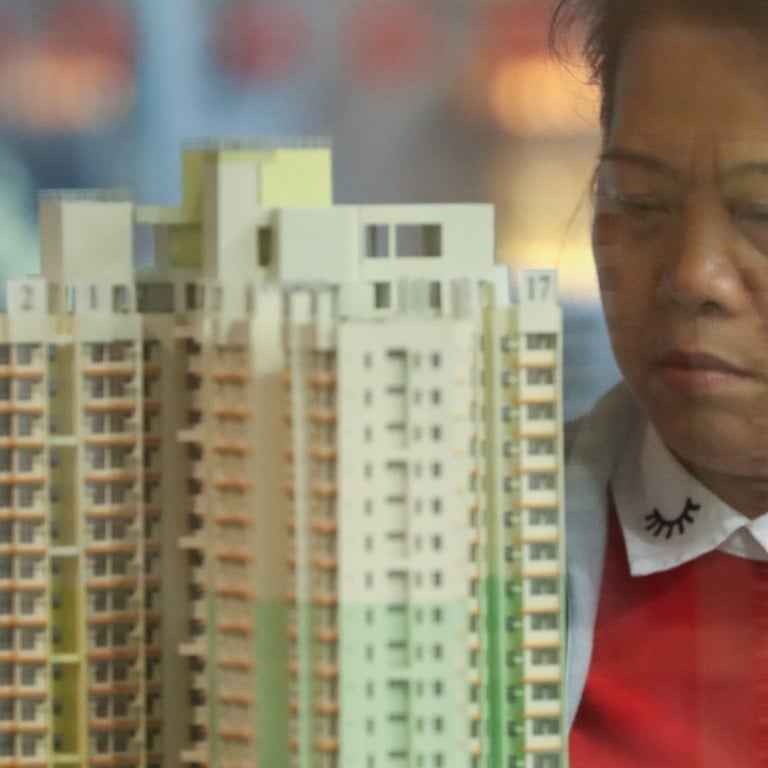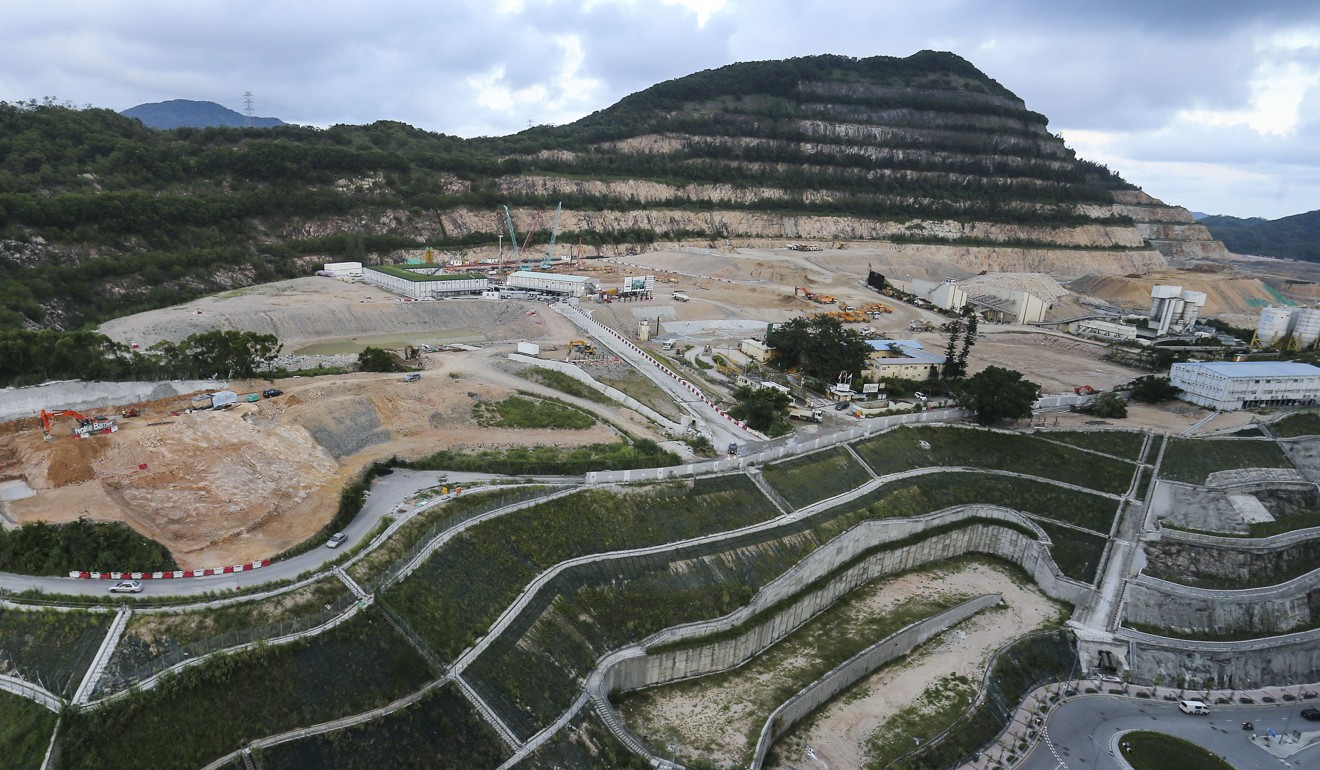
Carrie Lam looks to boost home ownership in Hong Kong with cheaper flats for the middle class
Anderson Road ‘Starter Homes’ scheme among slate of projects that chief executive hopes will help residents struggling to buy in world’s least affordable housing market
Hong Kong’s sandwiched middle-class families, too well-off to get subsidised housing but too poor to afford private homes in the world’s most expensive market, can look to a trial housing project in Kwun Tong from next year designed specifically for them.
It is part of a slate of projects from Lam to boost ownership, shifting the government’s public housing policy from rental-oriented to ownership-oriented.
Other policies include turning part of future public rental housing projects into subsidised flats under the Home Ownership Scheme for sale to existing public housing tenants.
And the government plans to widen out a pilot scheme which allowed people eligible for the Home Ownership Scheme to buy second-hand subsidised flats without having to pay a premium.
The Home Ownership Scheme sells government-built flats to residents who cannot afford to buy on the private market, at a discount on the market rate usually of about 30 per cent.

“Housing is not a simple commodity,” Lam said in her address. “We will focus on home ownership to enable our people to live happily in Hong Kong and call it their home.”
The pilot Starter Home site on Anderson Road, Kwun Tong, is one of a list of government lots to be sold to private developers next year.
Lam said the government would stipulate in the lease that developers have to reserve a certain share of the site for those eligible for the Starter Home scheme.
Under the new scheme, eligible buyers will be people who have lived in Hong Kong for at least seven years and have never owned property. Their monthly income will range from HK$26,000 to HK$34,000 for single people, and from HK$52,000 to HK$68,000 for households of at least two.
Looking for a flat for under HK$10,000 per month on Hong Kong Island or Kowloon? No chance, says agency
That is 30 per cent higher than the Home Ownership Scheme’s income limits. Fewer than 55,000 families would be eligible, the government estimated.
But the reselling restrictions on the flats might be tighter than those of the Home Ownership Scheme flats.
The home prices under the scheme were unknown, but a government source said monthly mortgage payments, as measured against monthly income, would be in line with that for other subsidised housing, which is 40 to 50 per cent.
The source said the government would be unlikely to grant developers any concessions when selling the site, and would possibly regulate the size of these affordable flats through the lease.
The plan to build more subsidised flats for public housing tenants would encourage these tenants to buy their own homes, while vacating their rented flats for people on the waiting list, Lam said.
In the future, Lam said, the government would convert part of the sites reserved for developing rental housing into subsidised Home Ownership Scheme developments.
One example she cited was a rental housing site in Fo Tan, Sha Tin, which could be converted into 4,000 subsidised flats for sale late next year.
Another source said although this policy would reduce the number of newly built rental flats, it would not reduce the overall number of rental flats as the same number of these flats would be empty after tenants moved into subsidised housing.
But Monique Wan Shui-ki, an associate professor of economics at Baptist University, said building more subsidised flats and selling them to public tenants would not be an efficient way to vacate rental flats. She said it would take time to build and sell the subsidised flats, as well as renovating the vacated ones.
She said it would be more efficient to redevelop old public rental housing estates with increased density.
As of June this year, 150,200 families and elderly people were waiting for public rental housing, with an average wait of 4.7 years, exceeding the targeted three years. Another 127,600 non-elderly people on their own are in a separate, lower-priority queue. Some of them have been waiting for more than a decade.
Chau Kwong-wing, a housing policy expert at the University of Hong Kong, said the Starter Homes scheme was at best “cough medicine” to ease the symptoms of the city’s housing problem.
“It will not be that effective since the supply of (new starter homes) will be relatively small,” he said.
Lawrence Poon Wing-cheung, a housing scholar at City University, said there would be incentives for private developers to participate in the scheme even if there were no concessions, because the land they buy from the government will probably be cheaper, if they are required to build affordable homes on it.
The plan to let Home Ownership Scheme buyers purchase second-hand flats in the scheme without having to pay a premium would make some 380,000 flats available in the secondary market more affordable, Lam said.
Currently, eligible buyers either have to compete for a limited amount of new subsidised flats in lucky draws, or have to pay full market rate on the secondary market.
Lam also promised to explore ways to provide temporary housing for families in between homes, such as allowing industrial building owners to convert the buildings into transitional housing without having to pay a premium, and using idle government premises for cheap rental housing.
On Wednesday, after Lam’s speech, Hong Kong developers’ stocks reversed recent gains. Analysts said that was because the chief executive did not mention cooperating with developers on things like co-developing their banks of farmland.


